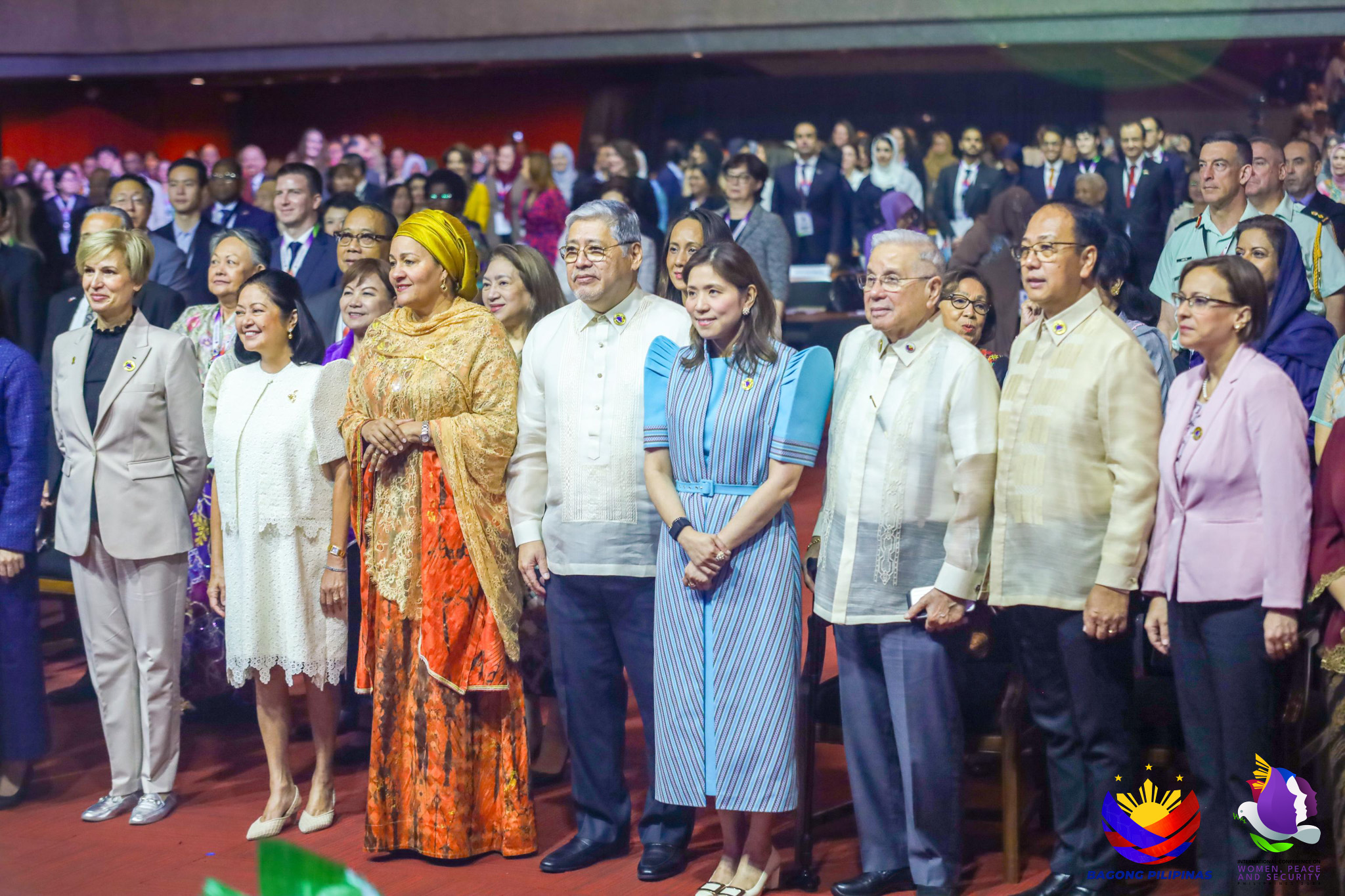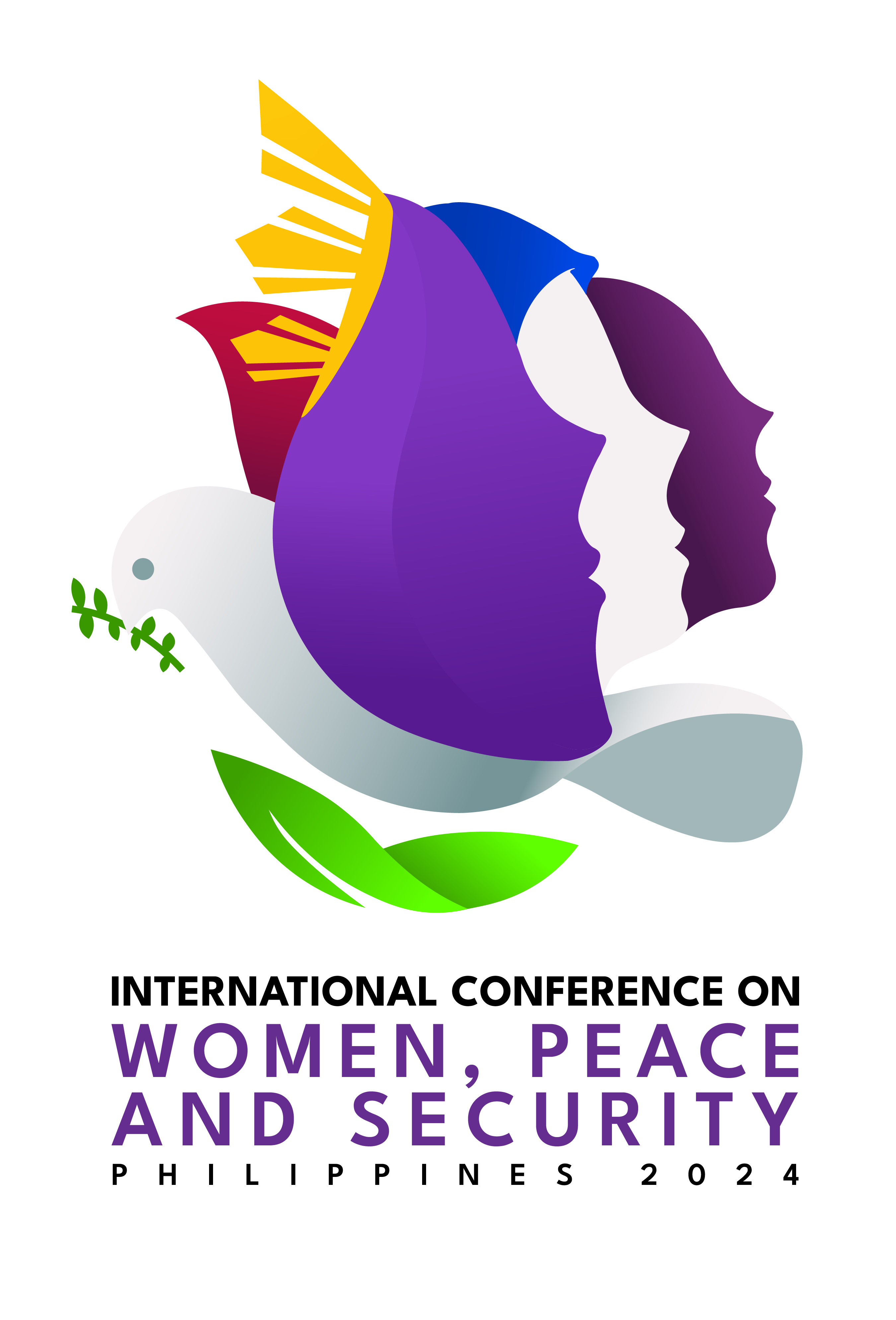PH praised for holistic efforts to empower Filipina women; formally open 3-day International Conference on Women, Peace and Security

PICC, PASAY CITY – The Philippines’ comprehensive efforts to advance women’s role in peacebuilding took center stage on Monday, October 28, as the country formally opened the International Conference on Women, Peace and Security (ICWPS).
With the theme. “Forging Collaboration and Convergence for Advancing Women, Peace and Security,” the three-day conference gathered close to 700 delegates from 70 countries across the globe.
The conference, which is being attended by 691 delegates, consisting of 27 ministerial-level officials and parliamentarians coming from 84 countries and six regions, is the first meeting of its kind to be held in the world.
In particular, delegates will assess the progress made by nations in the implementation of their respective Women, Peace, and Security agenda and explore ways to strengthen women's role in peacebuilding.
The conference will feature two high-level segments, 23 side events, and 15 exhibit booths.
PH, a powerful example of state’s key role women empowerment
In her speech at the conference, United Nations Deputy Secretary-General Amina J. Mohammed noted that the Philippines has set a powerful example in recognizing and advancing the role of women in peacebuilding, conflict resolution, and security dialogue.
“We are at a critical juncture in our shared pursuit of peace, security and sustainable development. The world is facing unprecedented challenges, and though we may not know how to tackle them all, there is one thing we know for certain: It is imperative that women are at the core of our solutions,” Mohammed said.
“The Philippines offers profound insights as the first Asian nation to adopt a National Action Plan on Women, Peace, and Security. And as you adapt and expand that plan to meet the moment and the evolving challenges that come with it, you are demonstrating commendable leadership,” she added.
According to Mohammed, the Philippines has a long and rich history wherein Filipina women have assumed major leadership roles both at the local and national levels, including the election of a lady peace advocate as president.
“I ask you to take a moment to consider how remarkable an achievement that is in a world where more than 100 countries have yet to see a woman in their highest office,” she emphasized.
The Philippines is among the first nations in Asia to adopt a National Action Plan on WPS, reflecting its commitment to United Nations Security Council Resolution 1325, which calls for the meaningful inclusion of women in all peace and security initiatives.
WPS: A multi-stakeholder agenda
In his statement, Foreign Affairs Sec. Enrique Manalo underscored that the “scope and breadth of the activities in the conference underscore that Women, Peace, and Security (WPS) is inherently a multi-stakeholder agenda, drawing strength from partnerships across governments, regional institutions, international organizations, civil society, and local communities.”
Manalo noted that the WPS agenda “has evolved in the last 25 years and must continue to evolve to address emerging challenges which are very real to nations and communities”
He emphasized that the main reason the Philippines decided to host the International Conference is “to contribute to international stocktaking in shaping a new consensus on the implementation of the Women, Peace, and Security (WPS) agenda ahead of the 25th anniversary of the United Nations Security Council Resolution 1325 (UNSCR 1325) - that will be next year in 2025.”
Manalo also announced that delegates hope to adopt the “Pasay Declaration on Women, Peace, and Security” during the conference, which is among the highlights of the event.
“This Declaration underscores our collective commitment to women’s participation, protection, and empowerment in all areas of peace and security. It reaffirms foundational commitments set forth in UN Security Council Resolution 1325 and related resolutions, calling for accelerated efforts to achieve gender equality and enhance women’s meaningful participation in conflict prevention, peacebuilding, and recovery processes,” he said.
President Marcos’ Commitment to Women, Peace and Security
First Lady Liza Araneta-Marcos, who graced the opening ceremony, said the Marcos administration puts a premium on women's empowerment.
“Since this summit is about women, my husband Ferdinand Marcos asked me to personally convey our welcome and to let you know that the Philippines is honored to host a conference of this significance and stature,” she said.
“This is the first international conference to be held in Southeast Asia, but it is specifically intended to take stock of how far we have all come in our country's implementation of Women, Peace, and Security's Agenda,” she added.
PH’ commitment to UNSCR 1325
In her message, Budget Secretary Amenah Pangandaman, Pangandaman cited the efforts that have been undertaken by the Philippine government over the years to ensure its compliance with United Nations Security Council Resolution (UNSCR) 1325.
According to Pangandaman, the Philippines’ Department of Foreign Affairs (DFA) has championed the WPS Agenda at various international fora that the country has participated in, adding that she herself has done the same in the conferences she has attended.
“In fact, I had the opportunity to head the Philippine delegation at the 68th Session of the United Nations Commission on the Status of Women held in New York last March 2024 where I highlighted the notable strides our country has gained in advancing women’s rights,” Pangandaman said.
She noted that the BARMM has its own Bangsamoro Women Commission “which promotes, and advocates, and mainstreams Gender and Development by integrating gender initiatives in the region.”
‘Women’s budget’
Pangandaman said that the DBM, for its part, has developed a “gender-responsive National Budget” that seeks to empower Filipina women.
“We have the ‘Women's Budget’ or the Gender and Development Budget in the General Appropriations Act, a policy directing all government agencies to allocate a minimum of five percent of their total annual budgets for gender programs, projects, and activities that align with the WPS Agenda,” she explained.
“And the Cabinet of President Ferdinand R. Marcos Jr. has five female Ministers, including yours truly—the only Muslim Filipina in the Philippine Cabinet and also the first Muslim Filipina Budget Minister in our country,” Pangandaman added.
“This reflects a substantial progress we have made in empowering women and enabling us to participate meaningfully in decision-making. It is also a testament to President Ferdinand R. Marcos Jr’s commitment to elevating women to more prominent roles, as well as greater voice—especially within the government,” she said.
Advancing women’s rights
“We are also excited about the adoption of the Pasay Declaration, which is in line with our collective platform for action to advance women’s rights and gender equality worldwide,” Presidential Peace Adviser Secretary Carlito G. Galvez, Jr. said in his remarks.
Galvez also announced that during the conference, the ceremonial signing of a Memorandum of Understanding (MOU) will be held for the establishment of the Philippines’ Center of Excellence on women, peace, and security.
The Center for Excellence, a collaborative effort between the OPAPRU and the U.S. State Department, is only the third such facility to be established in the world.
Once established, Galvez said the center will be a major achievement of the Marcos Jr.’s administration, which has expressed its unwavering commitment to women empowerment.
“May this three-day conference allow all of us to build meaningful partnerships, and gain invaluable lessons that we can take back to our respective communities and countries. May we unite and work together to capacitate, strengthen and empower women not only in our own countries but all over the world,” he concluded.

